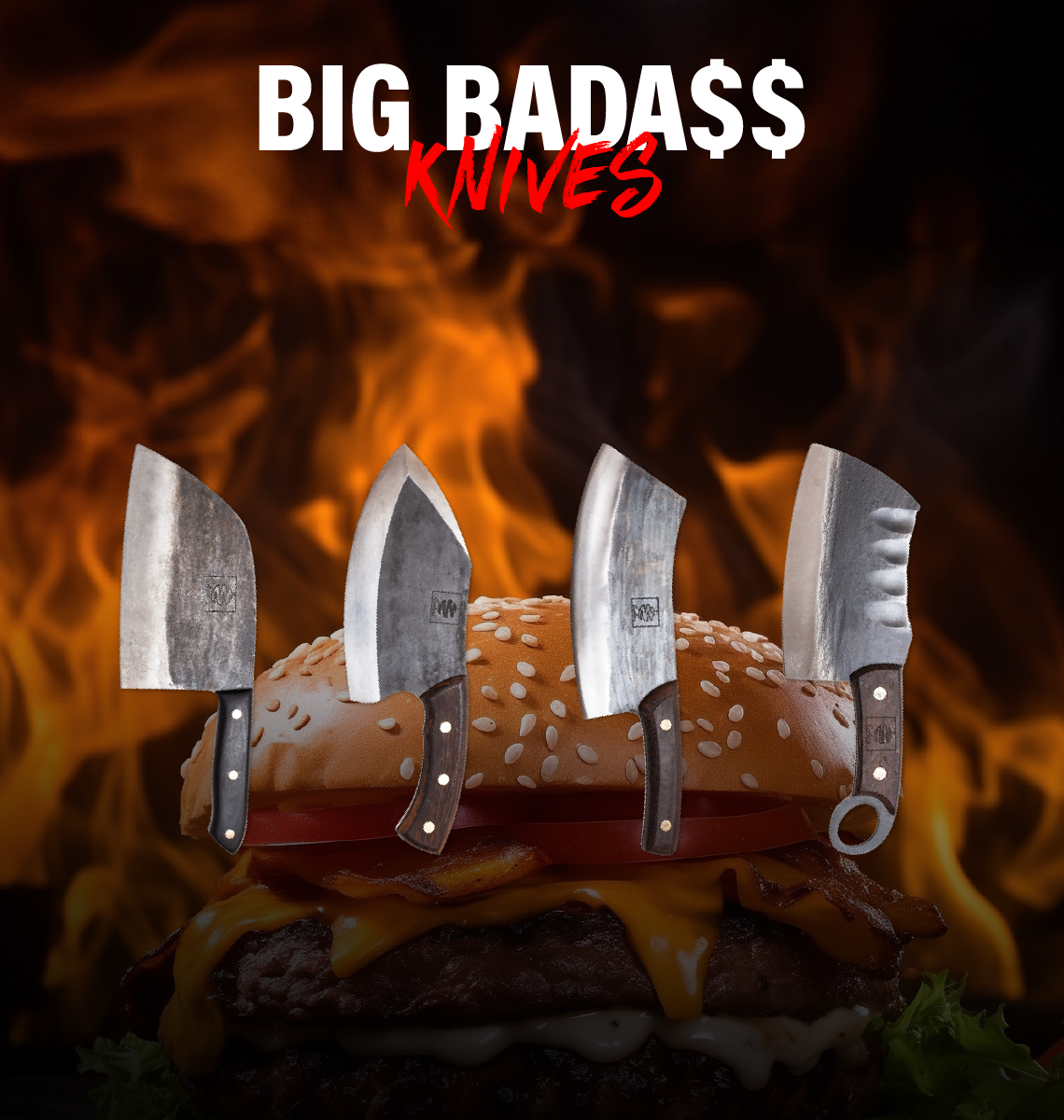Are Carbon Steel knives safe for food contact?
A question that bothers many people who love the look and feel of carbon steel knives but are scared to bite the bullet and buy them because of the rumors circulating around. Are carbon steel knives safe for food contact? The short answer is yes, in fact, if they weren’t we’d all be gone by now. But this is for those interested in a more detailed answer.
Stainless steel wasn’t produced in quantity until 1913. So up until then, all steel was “carbon steel”. Meaning that it’s been used safely for centuries. Then why are we scared to use them any longer you ask? Well, carbon knives have a one little problem. They start to rust and corrode in the presence of moisture. This problem is mainly caused due to bad care from the owner. Now, if you already own a rusty carbon steel knife here is a great guide on How to clean rust off a kitchen knife.
To help stop knife material from getting onto the food, you need to build a stable patina on the blade. This acts as a barrier that helps to prevent self-perpetuating orange rust from forming and damaging the blade as well as to prevent the same from rubbing off onto the food. Care must still be taken with acidic foods because, especially if the acid is strong and the patina is not well-established, the acid can remove the patina and transfer it to the food. This is not harmful and typically doesn’t even happen but can affect flavor and appearance when it does.
Rust in and of itself is actually not hazardous at all. Tetanus doesn’t just appear magically in rust. That’s not how bacteria works. It comes from the outdoor environment. Other bacteria cannot survive for a long time on naked dry steel. A small amount of rust on an indoor knife that has had maybe a few days at most to even begin rusting will not make you sick. As long as the person using the knife washes and dries it after the end of every shift, there is no reason to worry about knives in particular. You should be more wary of plastic cutting boards, which tend to spread bacteria far more than a rusty knife. You better use a wooden cutting board to protect your knives from getting blunt and your food from getting bacteria.
Professional chefs all over the world use only carbon steel knives. That's right: carbon steel stays sharper longer than other materials. Second, and this is really important, carbon steel, despite being harder than other steels, is way easier to sharpen. This is critical because knives that are used frequently simply don't stay very sharp for long. But don’t worry about that if you don’t know how to sharpen knives and spending too much on professionals is not an option, we have a guide on that too. Click here to learn how to sharpen steel knives.
In conclusion: Remember the vast majority of kitchen knives used today throughout the world are still non-stainless carbon. And virtually all of them from about a century ago and all the way throughout the existence of metal knives were reactive.






Be the first to comment